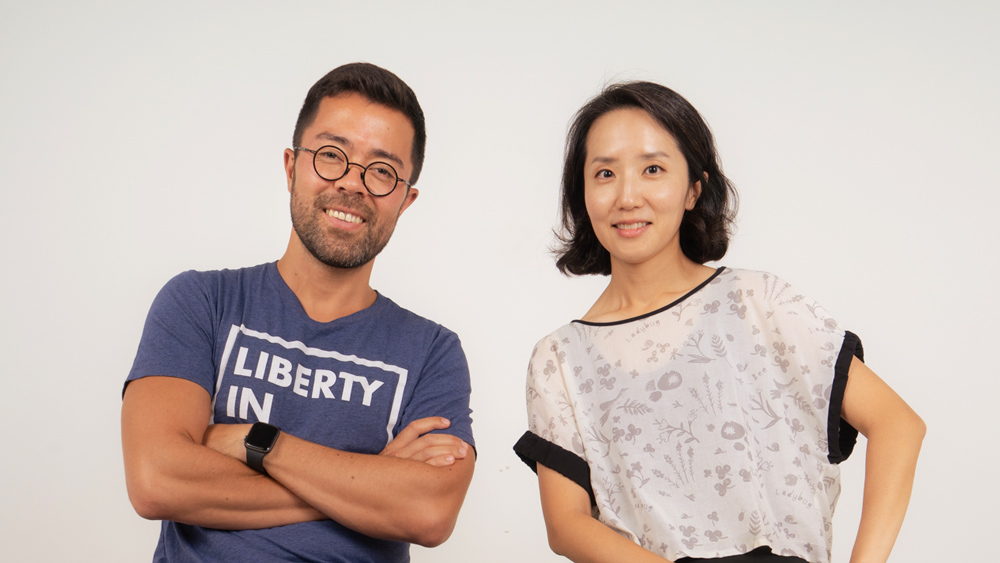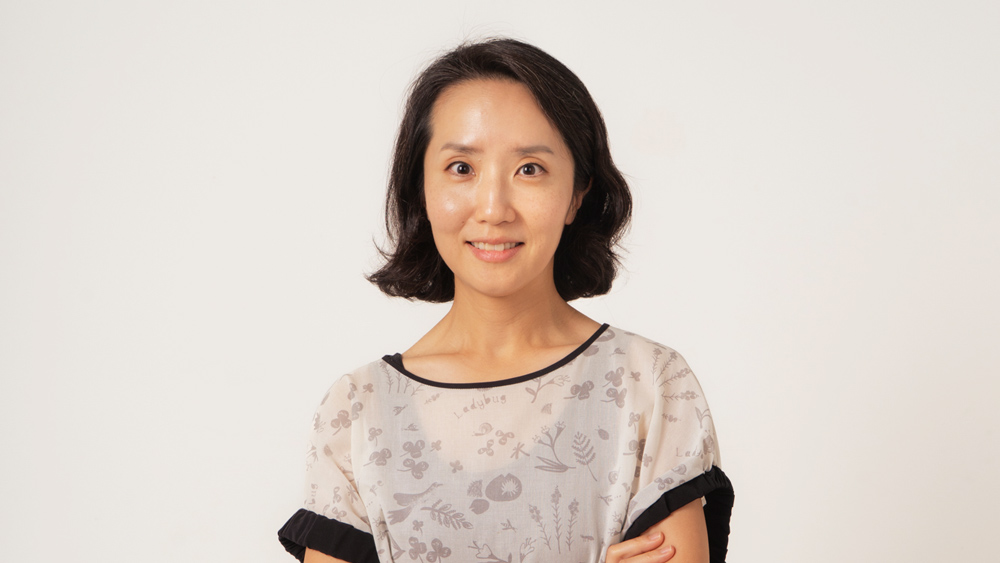Film Review: Under the Sun

Spoiler alert: The North Korean government suffers from a severe transparency deficit.
How do you reveal the reality of a society where government representatives script each scene you're allowed to shoot?
Simple: leave cameras rolling at all times, and show your audience the scripting and retakes of "real life" in all their glory.
You end up not with a documentary about a family going about their lives, but a behind-the-scenes reveal of a family whose dinner-table conversations, workplace interactions, and even expressed emotions are curated by government propagandists for external consumption.
No North Koreans question this process out loud--except to check their lines.In this system everyone knows the role expected of them, especially with government officials overseeing everything. So before our very eyes, we observe the theatrical production of an ideal 'Kimilsungist socialist society', played out by real citizen-actors. And when citizens know the risks of not playing the part they’re asked to play, they become good actors.
This is of course a very real aspect of life in North Korea, even when no cameras are rolling. The everyday ritualised theatrical production of 'obedient citizens willingly striving as one for the socialist cause' is one of the key means by which the state perpetuates itself. Everyone knows what to say, how to say it, and that you have to say it. Whatever your innermost thoughts may be, it's hard to break role publicly when everyone else is sticking so closely to a ‘script’.
Revealing the nature of this production, warts-and-all, is one of the key contributions of Under the Sun.But as with any behind-the-scenes look, cracks in the facade, tired actors and cock-ups are apparent.'Off stage', strategically placed cameras record poor Pyongyang kids scavenging from a trash can. We see commuters disembarking to push a tram. A government 'set manager' shoos away two women approaching the back door of a milk processing plant with a big jug; we can only guess they were looking for an off-the-books top up, unaware there were foreign filmmakers present that day.
We see a forgetful factory worker reporting they have exceeded production targets by 150%, and in the next take 200%. It doesn't matter to any of her coworkers which fiction is used, and no one bats an eyelid.
And of course, children being less practiced in their roles within the system than adults, the best scenes feature North Korean kids. A small girl struggles to keep her eyes open while an aging war veteran wearing far too many medals bumbles through an anti-American propaganda lecture, punctuating tales of shooting down planes with praise for Kim Il-sung.
Jinmi, the star of the film, breaks down in tears when the pressure of performance becomes too much. Elsewhere, on-screen text tells us that she unwittingly revealed her parents' true occupations of journalist and restaurant worker before the government co-producers scripted them as the more socialist-appropriate textile factory technician and soy milk plant worker.
It's hard to not recall The Truman Show, and it boggles the mind to think there are 25 million people living out their lives in this theater state.
But unlike a Hollywood Movie, the enemy here is not represented by a snarling on-screen character. The propagandists are unnamed and we rarely even see their faces properly. The enemy is in fact the system itself, whose quiet tyranny forces every citizen - including the propagandists - to become complicit in its perpetuation by allowing the expression of only a singular narrative of what it is to be a North Korean.
At the Forefront of North Korean Human Rights Work | LiNK Organizational Update
Liberty in North Korea welcomes Sarah Yun as our new Chief Regional Officer (CRO), South Korea, as our previous South Korea Country Director, Sokeel Park, transitions into a new role as our Chief Strategy Officer (CSO). Sarah and Sokeel will collaboratively lead LiNK’s South Korea operations while growing LiNK’s impact through their respective areas of expertise.

Over a Decade of Dedication to Human Rights
Sarah Yun brings a wealth of experience and expertise from her work to advance human rights in North Korea and across Asia during the past 15 years. She most recently served as the Country Director of Korea and Cambodia at the National Democratic Institute (NDI), managing the Institute’s operations and programs in the two countries.
Previously, Sarah was a Senior Manager for Asia at the National Endowment for Democracy (NED), overseeing the Cambodia, Vietnam, North Korea, Thailand, and the Philippines programs and teams. Prior to her experience at the NED, she worked at the Center for International Private Enterprise where she managed the Cambodia and North Korea programs, in addition to the Papua New Guinea program and field office.
“I have had the opportunity to work on issues related to various countries in Asia at a variety of institutions throughout my career, but my greatest passion has always been to envision a North Korea where its people can choose their own future. I am deeply inspired by the stories and resilience of the North Korean people and am committed to supporting their leadership and efforts toward a better future.”
– Sarah Yun, LiNK CRO

Sarah holds a BA in Political Science and Business Institutions from Northwestern University and MA in International Relations and International Economics from Johns Hopkins University School of Advanced International Studies. Her journey with LiNK began in college, when she came across her campus LiNK Team.
“I first learned about LiNK during my college years, when chapters began to emerge across the United States. Since then, I have respected the organization’s mission and work. When I was given the opportunity to work at LiNK, I had great anticipation and excitement at the thought of joining and supporting North Koreans' journey toward a free and open future. Together with the LiNK team, I hope to contribute to amplifying the leadership and voices of young North Korean defectors in creative and impactful ways.”
– Sarah Yun, LiNK CRO
A Strategic Shift
As LiNK continues to expand and refocus our programs in response to the evolving needs of this issue, there was a timely opportunity to bring on Sarah and diversify the organization’s impact.
As CRO, Sarah Yun will lead LiNK’s South Korea team, oversee our Capacity Building Programs, and represent the organization in South Korea. Sokeel Park will jointly represent LiNK alongside Sarah and maintain key collaborative efforts with external stakeholders. As CSO, Sokeel’s scope will also encompass the development of the organization’s broader strategy and Information Access Programs (IAP). Moving forward, IAP is an area of work which we are expanding as a crucial way to support North Koreans driving change inside the country, and achieve our vision.
North Korean refugees consistently tell us that getting more outside information into North Korea is crucial for empowering North Koreans to change their country. The importance of this area of work has only increased in recent years, so it is vital that we are able to increase the resources and time we are investing into these strategies. I’m extremely grateful to our donors for joining with us and making this expansion and these initiatives possible.”
– Sokeel Park, LiNK CSO
This is a challenging time for North Korean people, refugees, and the issue. We are grateful to Sarah for bringing her experience and expertise to LiNK and everyone whose support sustains our organization and enables us to grow.
We look forward to increasing our impact with Sarah’s leadership and sharing updates about our progress with our supporters.




